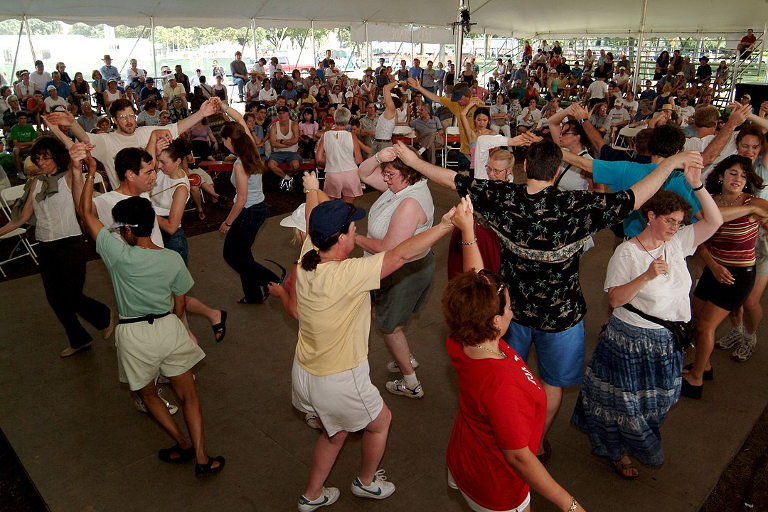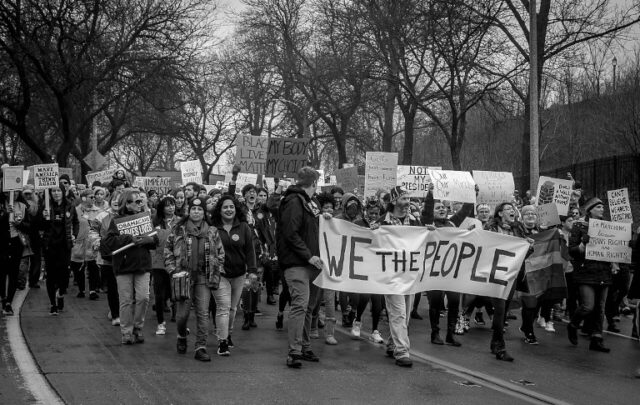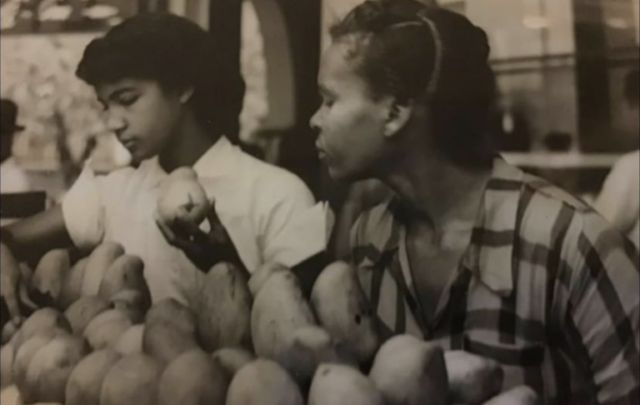The publication of On the Origin of Species in 1859 rattled the foundations of religious belief in every corner of the book-reading world. We know a good bit about the debates that ensued because they still flare up wherever there are people who insist on the literal truth of the origins myth found in the Judeo-Christian bible. Unless we are historians, we probably know a good bit less about a controversy that Darwin’s book stirred up among scientists at the time. The scientific community long ago reached a consensus on this issue, but the contrasting positions staked out by Darwin and other evolutionists bear scrutiny for the light they shed on a matter that is still far from settled.
Darwin’s discovery of the principle that accounted, in plain empirical terms, for biological variations generated new terms for reckoning with differences among humans. Darwin argued for “monogenesis” – the idea that all human beings belong to one species. He believed this position was the only one consistent with the workings of natural selection as an evolutionist conceived them. We all evolved from “a single primitive stock,” he argued, and so the commonalities on display within the human species are more fundamental – more meaningful for those seeking scientific explanations – than the differences.
The “polygenists” were more impressed with the differences and, in support of those impressions, proposed that the different “races” of humans were the product of separate creations and thus should be viewed as distinct species. Francis Galton, a cousin of Darwin and a key contributor to these debates, aspired to put the polygenists’ position on a firm scientific footing by devising a classification system for assessing the “comparative worth” of different races. He plotted the peoples of the world along a sixteen-class axis, using the language of statistics (“deviation from the mean” and such) to invest his scheme with the plausibility of a mathematical axiom. As a key founder of eugenics – the idea and the movement – Galton injected the idea of distinct human races into the realm of public policy, where it functioned as an “empirical” warrant for the racial reveries of segregationists and Nazis. Alfred Russel Wallace, who had arrived by his own route at a theory of natural selection, conceded the existence of a common ancestor for all human beings, but so unevenly distributed what he deemed the “higher” mental faculties among them that, in his view, a properly empirical mind must approach different groups as if they were “originally distinct races.” To treat the common origin of all humankind as a workable hypothesis one must place the “brutes” of the world on a par with those engaged in studying them, an analytic step that, for Wallace, put the scientific observer at odds with widely accepted facts.
Declaring for the fundamental unity of the human species did not render Darwin immune to the prejudices of his time. Imperial expansion was in full swing at the time he was writing and he frequently noted, in unison with most European observers, that the “civilized” were bound in due time to displace the “savages” just then being incorporated so mercilessly into various colonial systems. A staunch abolitionist and vocal opponent of racism as it manifested in his own society, Darwin had no compunctions about declaring white Europeans to be “superior” to the people he encountered on his journeys or in the writings of other voyaging naturalists. Wallace exhibits a similar profile. A highly visible participant in British public affairs, he embraced the radical ideas of Edward Bellamy and Henry George, advocated for women’s suffrage, and crusaded against the evils of militarism. Like Darwin, he adjudged the white race to be superior to all the rest, particularly when it came to intellectual prowess and moral probity. Accordingly, Wallace deemed the whole European colonial project an important, and salutary, step in the progressive unfolding of civilization.
What, then, is the point of according contemporary relevance to a long dead scientific debate when one’s position seemed to have little bearing on one’s scientific judgments or political opinions? The monogenist (Darwin) and one of the polygenists (Wallace) seemed to agree about many issues of the day. Darwin and Wallace rejected on similar grounds the idea, advanced by the other polygenist mentioned here (Galton), that members of the “advanced” race could, and by rights should, further the cause of civilization by actively impeding the reproductive capacities of the “stunted” ones. We are, in any case, all monogenists now and have been since Franz Boas and the many anthropologists who followed in his wake moved the discussion of human difference from the realm of biology to the realm of culture and dismissed any ranking of different cultures along a superior/inferior scale as scientifically unfounded and morally distasteful.
Yet Darwin clearly believed that something important was at stake. He must have had a compelling reason to press his case for monogenesis so hard among contemporaries who had adopted his theory of natural selection and accepted the implications it held for our understanding of the evolution of species and societies. Why take the polygenists so forcefully to task for an inexact framing of the question of human differences when all parties to the debate seemed to be in agreement that those differences were quite real and, as determinants of evolutionary outcomes, profoundly consequential?
The distinguishing feature of Darwin’s argument for monogenesis emerges when we consider what he adjudged to be the most telling kind of evidence for pan-human kinship. Here it is in full, as found in the chapter devoted to the debate he included in The Descent of Man, published twelve years after Origin:
… the close similarity between the men of all races in tastes, dispositions and habits … is shown by the pleasure which they all take in dancing, rude music, acting, painting, tattooing, and otherwise decorating themselves; in their mutual comprehension and gesture-language, by the same expression in their features, and by the same inarticulate cries, when excited by the same emotions.
Darwin, it appears, was moved both by the many festive events and ritual observances he witnessed during his global expeditions and by his realization that the emotions stirred up therein were present in every human breast, his own Victorian one included. These observations flow from an unspooling of empathy – an emotional identification strong enough to span the chasms of language, culture, and physiognomy. The pleasure to which Darwin alludes was something that he must also have felt, even if he was too buttoned up to have done any rude dancing, singing, or hootin’ and hollerin’ himself. His dogged defense of the singularity of the human species rested on a truth that came to him by way of a pleasurable sensation, not by way of reasoned deduction from a scientific theory or metaphysical postulate. If Wallace, Galton, or anyone else who took up the cause of what was soon to be called “social Darwinism” ever experienced this sensation, they did not report on it. Nor were they capable of the empathic identification that it entailed.
Darwin’s invocation of “rude music” as evidence for the monogenist position thus marks an important fork in the road of Western thinking about human differences and, indeed, the human condition generally. One branch leads from the polygenists through the social Darwinians, eugenicists, and myriad other race-proud bigots who have followed in their wake. That branch of the Darwinian family has cut a broad swath of hatefulness and ugliness through the last century-and-a-half of history. The other takes off from Darwin’s insistence on the “close similarity” that binds all members of a single human species. This insight led Darwin to designate a role for “social instincts and sympathies” in his evolutionary scheme and to hope, in his wistful moments, that these impulses might someday allow us to dismantle the “artificial borders” erected to justify hateful and ugly behavior. Peter Kropotkin widened Darwin’s notion of natural selection to give pride of place in the evolutionary drama to social instincts like cooperation, or “mutual aid.” As an empirical project, that branch of Darwinism has blossomed into studies, currently proliferating, of all manner of dense entanglements and symbiotic interdependencies in the natural world. As a philosophical proposition, Darwin’s notion that everything in nature, humans included, are “netted together” was a major source of inspiration for Aldo Leopold’s land ethic, which we are much too slowly coming to recognize as the highwater mark of moral thinking in the Western tradition. This Darwinian current, in both its scientific and its ethical commitments, has now converged with the belief systems of those – the indigenous of every continent – who knew from hard experience that those who divorced fact gathering from right conduct, and felt that both could proceed without any consideration of what was owed to the land, were crazy in the head. Thus have Darwin’s tattooed revelers and rude singers made a mockery of every “civilized” pretension to superiority.
This minor episode in intellectual history reveals a bit of practical wisdom that we, fighting for a livable future amidst a cascade of persisting failures and looming disasters, would do well to contemplate. Empathy, it turns out, is a powerful force in history, capable of effecting outcomes altogether different from those produced by the workings of the intellect. Darwin, Wallace, and Galton all had access to the same stores of knowledge. Each traveled widely and engaged first-hand with the inhabitants of distant lands – collectively, the shores of Latin America, the southern tip of Africa, the East Indies, the Middle East. Each was trying to fit what he learned into the same framework – the new concept of “descent with modification” and its many ramifications. Yet only Darwin felt the tug of empathy – the raw experience of fundamental kinship. That experience anchored his insistence on human similarity and fueled his determination to challenge those who erected insurmountable barriers of reasoning capacity and moral decency between peoples. The arguments he mounted for these purposes, however halting, were sufficiently expansive and warm-hearted to inspire those who have since developed the ideas – the pluralist conception of cultural difference, the deeply ecological notions of a biosystem and of “land communities” (Leopold’s phrase) – that now undergird all but the most stubbornly Klannish understandings of varying life forms and cultures.
One other example, this one from the literary world, confirms the role of empathy in shaping events that we only vainly attribute to an intellect working in heroic detachment from emotional encumbrance. Herman Melville was sailing the same seas, at roughly the same time, as Darwin, Wallace, and Galton. He did so not as a detached collector of data but an ordinary crew member on a boat outfitted to hunt and slaughter whales for commercial purposes. These crews were broadly multinational – adventurous lads from New England and the Alleghenies shared work tasks, meals, and leisure time with sailors from the South Sea Islands, Africa, and Asia. Christians mingled amicably with Muslims, Hindus, and pagans. Tattoos, piercings, and other bodily decorations were conspicuous. Ritual observances – passing a pipe, reverencing an idol – and all manner of rude dancing and singing figure prominently in Melville’s account (in Moby-Dick) of the tight bonds of fellow-feeling that develop between Ishmael, the narrator, and his shipmates. He paints the key moment in his acceptance of Queequeg as a “bosom friend” in the glowing hues of empathy – an internal “melting” that dissolves the borders his biases had erected between the Manhattan-bred narrator and the pagan harpooner. Where most white abolitionists of the day acted in a spirit of Christian charity – doing good in this case meant freeing the poor wretches and commissioning a boat to ferry them back across the Atlantic to be colonized in Liberia – Melville exhibited no paternalism in his characterizations of the crew. These men, however exotic in beliefs and custom, were Ishmael’s intellectual and moral peers. Babo, the mastermind behind the slave mutiny in Benito Cereno, is perhaps the most able-minded and resourceful character of any color Melville created in his many works of fiction. As for trustworthiness, Ishmael noted while contemplating Queequeg’s dark complexion, “a man can be honest in any sort of skin.”
The same cannot be said of “any sort” of social arrangement. And that, finally, is the point. Traits like honesty, empathy, or any other of the admirable qualities we strive to exhibit in our daily lives first emerged as tools of survival in enduring kin and small group relationships. Habits of cooperation and loving care were born in small settings and need small settings to remain operative. The everyday operation of big institutions – national governments, global corporations – habituate us to resentful subservience and anxious money-grubbing. As loyal citizens and employees, what we think and do is governed by resentment and anxiety, sentiments that are all too readily converted into prejudice and hate. Melville settled so comfortably into a worldview far in advance of nearly every other contemporary writer of Euro-American extraction because he was embedded so snugly in the day-to-day activities of a wildly diverse crew. Toleration and fellow-feeling were part of his lived experience rather than abstract ideals to be fretted over from a charitable distance. Working together to build, harvest, hunt, or repair, getting “rudely” festive after work is done – these seem to be the only means by which hardened prejudice can be dissolved.
Happily, these quite ordinary activities compose the habitat wherein all the traits we claim to value might be rescued from extinction. Whether we are fighting against hatefulness in its many forms or against the growth-at-any-cost behemoth that is steadily wiping out nearly every living thing that does not walk on two legs, our task is really the same – building communities that allow us to get back to doing what we have evolved to do. Whether they are rural, suburban, or urban, those communities must be small. They must be places we love and know well enough to take care of properly. They must be small enough to allow everyone a voice in decision making – the only kind of democracy worthy of the name. They must be places where we put our shoulders to a common wheel, apply our minds to shared difficulties, move our feet to the same rude rhythms, lift our voices and our glasses to accomplishments in which everyone, regardless of what they look like or where they came from, can take pride. If we want a future different from the one now bearing down on us with a full load of menace, we must fight for it as localists.
… for an attempt to flesh out a localist politics, please visit occupythehearth.org
Teaser photo credit: By Smithsonian Institution – https://www.flickr.com/photos/smithsonian/2548929276/, No restrictions, https://commons.wikimedia.org/w/index.php?curid=53630643























